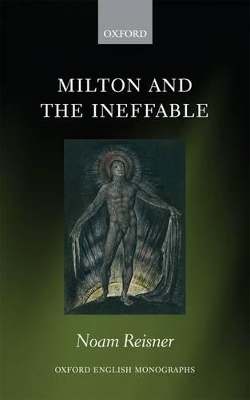Oxford English Monographs
1 total work
Milton and the Ineffable offers a comprehensive reassessment of Milton's poetic oeuvre in light of the literary and conceptual problem posed by the poet's attempt to put into words that which is unsayable and beyond representation. The struggle with the ineffability of sacred or transcendental subject matter in many ways defines Milton's triumphs as a poet, especially in Paradise Lost, and goes to the heart of the central critical debates to engage
his readers over the centuries and decades. Taking an interdisciplinary conceptual approach, this study sheds fresh light on many of these debates by situating his poetics of ineffability in the context of the intellectual cross-currents of Renaissance humanism and Protestant theology. The book plots an ongoing
narrative in Milton's poetry about silence and ineffable mystery which forms the intellectual framework within which Milton continually shapes and reshapes his poetic vision of the created universe and the elect man's singular place within it. From the free paraphrase of Psalm 114 to Paradise Regained, the presence of the ineffable insinuates itself into Milton's poetry as both the catalyst and check for his poetic creativity, where the fear of silence and ineffable mystery on the one
hand, and the yearning to lose himself and his readers in unspeakable rapture on the other, becomes a struggle for poetic self-determination and finally redemption.
his readers over the centuries and decades. Taking an interdisciplinary conceptual approach, this study sheds fresh light on many of these debates by situating his poetics of ineffability in the context of the intellectual cross-currents of Renaissance humanism and Protestant theology. The book plots an ongoing
narrative in Milton's poetry about silence and ineffable mystery which forms the intellectual framework within which Milton continually shapes and reshapes his poetic vision of the created universe and the elect man's singular place within it. From the free paraphrase of Psalm 114 to Paradise Regained, the presence of the ineffable insinuates itself into Milton's poetry as both the catalyst and check for his poetic creativity, where the fear of silence and ineffable mystery on the one
hand, and the yearning to lose himself and his readers in unspeakable rapture on the other, becomes a struggle for poetic self-determination and finally redemption.
